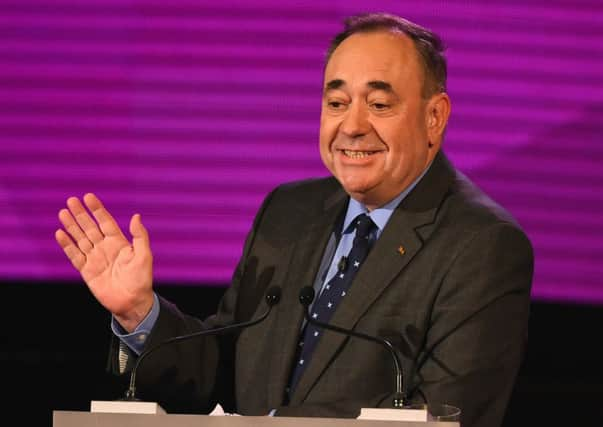John Curtice: will TV debate influence voters?


Last night’s programme began with questions from the audience, rather than leaving them until after the leaders cross-examined each other.
This change of order favoured Mr Salmond. In the first debate he was undone by Mr Darling’s persistence on the currency issue during the cross-examination. By the time questions from the audience came around his opportunity to woo the audience had already been lost.
Advertisement
Hide AdAdvertisement
Hide AdThis time, the First Minister was able to impress his more relaxed personality on the proceedings from the beginning, standing aside from the lectern and addressing his questioners directly. Mr Darling remained firmly stuck behind his lectern.
But when it came to content, Mr Darling again took every chance he could to talk about currency. It was clearly a bone this particular dog was not going to let go off easily.
This time, however, Mr Salmond was ready, and took up Mr Darling’s challenge. The First Minister argued he was seeking a “mandate” to keep the pound, and repeatedly challenged Mr Darling to indicate that he would accept that was what Scotland wanted should it vote Yes. Arguing he had three Plan Bs, the First Minister was not cornered on currency in the way he had been three weeks ago. Equally, there was again very little discussion on the issue that matters most to voters – whether independence would be good or bad for Scotland’s economy.
There was little more than a spat about how much oil is left in the ground. Neither leader addressed the key issue, which is how Scotland’s economy should be managed so that the nation’s public finances are still healthy when the oil does eventually run out.
However, perhaps the most important theme of the evening was risk. From the beginning Mr Darling was keen to reinforce voters’ existing impression that independence is a riskier option than staying in the UK. But Mr Salmond soon took the chance to press his argument that inside the UK Scotland’s NHS would find its budget cut. He also had Mr Darling struggling to defend the welfare policies of the current UK government and to state what further job making powers might be devolved to the Scottish Parliament.
A much better night for Mr Salmond. But will it be enough to sway many voters?
• John Curtice is Professor of Politics, Strathclyde University